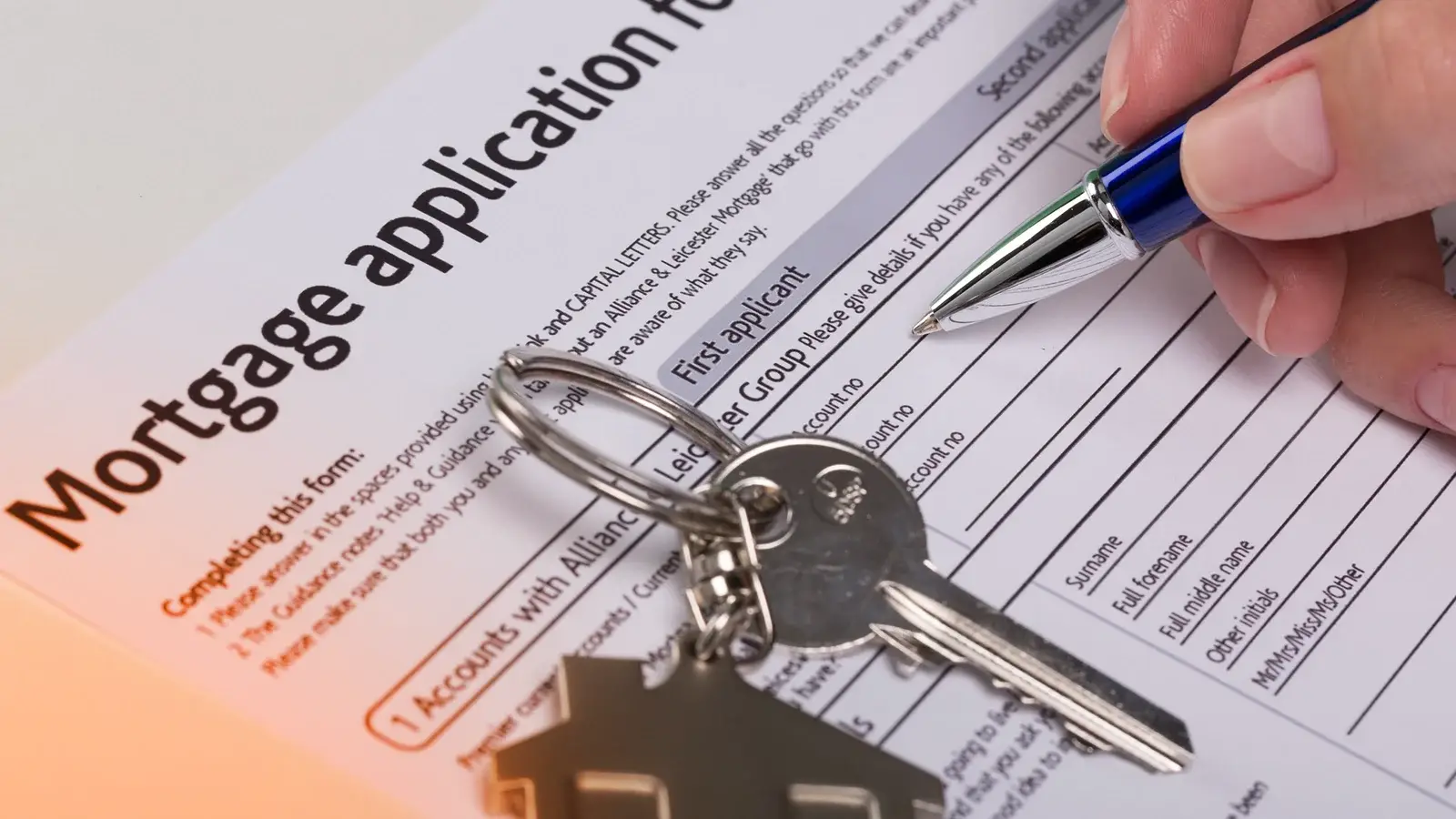In today’s interconnected world, understanding the distinction between residential and postal addresses is crucial. Whether you’re sending personal correspondence or managing business operations, knowing the nuances of these address types ensures accurate mail delivery and compliance with legal regulations.
In this comprehensive guide, we’ll delve into the differences between residential and postal addresses, exploring their definitions, functions, and implications.
What is a Residential Address?

A residential address, a specific type of physical address, refers to the physical location where an individual or family resides.
- A residential address typically includes the house or apartment number, street name, city, state, and zip code.
- Residential addresses are used for personal communication, such as receiving mail, packages, and official documents.
- They also serve as the primary point of contact for individuals with utility providers, government agencies, and other service providers.
- Whether it’s your cozy home or a rental property, a residential street address is an essential component of daily life.
What is a Postal Address?

A postal address, commonly known as a mailing address, is the location designated by postal authorities for the delivery of mail and packages. It includes the recipient’s name, street address or post office box number, city, state, and zip code.
- A postal address can serve both as a mailing and physical address, though they may differ in cases such as small home-operated businesses, which might use a dedicated business mailing address like a P.O. Box for privacy or convenience.
- Postal addresses are essential for sending and receiving mail through postal services like the United States Postal Service (USPS).
- They serve as a centralized point for mail delivery, allowing individuals and businesses to receive correspondence and shipments efficiently.
Residential and Postal Address: What’s the Difference?
While both mailing addresses and residential addresses serve the purpose of identifying a location, there are key distinctions between the two, including scenarios involving residential and mailing addresses.
- A residential address refers to the physical location where an individual or family resides. In contrast, a postal address, sometimes differing from the residential address, is specifically designated by postal authorities for mail delivery.
- This distinction is crucial in cases where the residential address is not recognized as a mailing address by the USPS, requiring individuals to understand the process of getting a residential address recognized for mail delivery.
- Another significant difference between a mailing address and a residential address lies in usage and application, with residential addresses being personal residences and postal addresses serving as centralized points for mail delivery.
- It’s important to note that while in many cases residential and mailing addresses can be the same, there are instances where they differ, leading to potential issues in mail delivery if not properly managed.
When To Use a Residential Address
Residential addresses are typically used for personal communication and identification.
- Residential addresses are ideal for receiving personal mail, packages, and official documents. Individuals often use their residential address for voter registration, driver’s license, and other personal documentation.
- Residential addresses are used for billing purposes with utility providers and other service companies.
- When privacy and personalization are key, a residential street address is the preferred option.
When To Use a Postal Address
Postal mailing addresses are primarily used for official correspondence and mail delivery.
- Postal addresses are ideal for businesses, organizations, and individuals who require a centralized location for mail receipt.
- Mailing addresses are often used for business registration, mail forwarding services, and commercial correspondence.
- Individuals may opt for an alternative postal address, such as a post office box, to maintain privacy or separate personal and business mail.
- Postal addresses offer convenience, security, and reliability for receiving mail and packages.
- Postal addresses are designated by postal authorities to efficiently deliver mail to recipients.
How To Get a Residential Address
When acquiring a residential address, several methods can be utilized to establish your place of residence:
Renting or Buying a Property

One common way to obtain a residential address is by renting or purchasing a property.
- Whether it’s an apartment, house, or condominium, entering into a rental agreement or buying a property provides you with a physical location to call home.
Applying for Utility Service
Another avenue to secure a residential address is by applying for utility services such as electricity, water, and gas.
- Utility companies require a valid residential address for service activation, making this process an essential step in establishing your residential location.
Registering with Government Agencies

Registering with government agencies is also a crucial method for obtaining a residential address.
- This includes updating your address with the Department of Motor Vehicles (DMV) for driver’s license and vehicle registration, as well as updating your voter registration information with local election offices.
- These agencies require proof of residence to ensure accurate record-keeping and identification.
How to Get a Postal Address
To obtain a postal or mailing address for mail delivery, consider the following options, including applying for a P.O. Box address:
- A P.O. Box address serves as an alternative mailing address for individuals and businesses who prefer not to receive mail at their physical address.
- It offers numerous advantages such as enhanced privacy, a clear separation between personal and business mail, and compliance with certain government registration requirements.
Applying For a P.O. Box

One traditional method to acquire a mailing address is to apply for a P.O. Box at your local post office.
- A P.O. Box provides a secure and centralized location for receiving mail and packages, ideal for individuals and businesses seeking privacy or convenience.
Registering with Postal Authorities
Alternatively, you can register with postal authorities to receive a mailing address for mail delivery to your location.
- This involves submitting your address details to the postal service for mail routing and delivery.
Using a Virtual Mailbox Service

A modern and innovative option to obtain a mailing address is to use a virtual mailbox service or virtual address service, which provides a digital mailbox for managing your mail remotely.
- With a virtual mailbox, you receive a real physical address which allows you to access and manage your mail online, receive notifications of incoming mail, and forward mail to any location worldwide.
- This flexible solution is ideal for individuals and businesses looking for a modern and convenient way to handle their postal mail.
What is a Virtual Address?

A virtual address is a service provided by third-party providers that allows individuals or businesses to receive mail and packages at a designated mailing address.
- This mailing address is typically a physical location or a commercial address used solely for mail handling purposes.
Can You Use a Virtual Address as a Residential or Postal Address?

In today’s digital age, virtual addresses offer flexibility and convenience for individuals and businesses. Let’s explore whether a virtual address can serve as a physical and mailing address.
Can You Use a Virtual Address as a Residential Address?
While a virtual address may provide a mailing address for individuals or businesses, it typically cannot serve as a residential address in the traditional sense.
- Residential addresses refer to physical locations where individuals reside, whereas virtual addresses are commercial addresses used for mail handling.
- Therefore, virtual addresses may not be suitable for official purposes that require a residential address, such as voter registration or driver’s license applications.
Can You Use a Virtual Address as a Postal Address?
Yes, a virtual address can function effectively as a postal or mailing address. Postal addresses are designated by postal authorities for mail delivery, and virtual addresses can serve this purpose efficiently.
- Individuals or businesses can use virtual addresses to receive mail and packages from postal services like the United States Postal Service (USPS).
- Virtual addresses offer flexibility and convenience for managing mail without the constraints of an office address.
The Benefits of Using a Virtual Address

Using a virtual address offers numerous benefits for individuals and businesses, including:
Privacy
Virtual addresses provide a level of privacy by keeping personal or business addresses confidential, and one significant benefit is the enhanced level of privacy it offers.
- By utilizing a virtual mailing address, individuals and businesses can keep their personal or business addresses confidential.
- This is particularly beneficial for those who value privacy and wish to avoid disclosing their physical location publicly.
- With a virtual address, you get a mailing address for sensitive mail and packages, which can be received without compromising personal or business security.
Flexibility
Virtual addresses allow for mail management from anywhere with internet access, offering flexibility for travelers or remote workers.
- Unlike a traditional physical mailing address, virtual addresses enable individuals and businesses to manage their mail from anywhere with internet access.
- This level of flexibility is invaluable for travelers, remote workers, and those who frequently move residences.
- Whether working from a coffee shop, a co-working space, or a different city altogether, individuals can rest assured that their mail is being securely managed through their virtual address.
Professionalism
Virtual addresses convey a professional image for businesses, especially startups and freelancers working from home.
- For businesses, especially startups and freelancers operating from home, having a virtual mailing address can enhance their professional image.
- It conveys a sense of legitimacy and stability to clients and customers, instilling confidence in the reliability of the business.
- By presenting a professional mailing address, businesses can establish credibility and stand out in a competitive market.
Security
Most virtual mailing address providers often offer robust security measures to ensure the safe handling and forwarding of mail.
- This includes secure storage facilities, mail scanning services, and package tracking capabilities.
- With these security features in place, individuals and businesses can trust that their mail is being handled with the utmost care and diligence, minimizing the risk of mail theft or loss.
Conclusion
- While virtual addresses may not function as traditional residential addresses, virtual addresses offer valuable solutions for managing mail and packages.
- Whether used for business or personal purposes, virtual addresses provide flexibility, privacy, and convenience in today’s fast-paced world.
- Understanding the distinctions between residential, postal, and virtual addresses ensures individuals and businesses can choose the right solution for their needs.
Frequently Asked Questions (FAQs)
What are some common uses of residential addresses?
- Residential addresses are commonly used for personal communication and identification. They serve as the physical destination where individuals reside and receive postal mail, packages, and official documents. Additionally, residential addresses are used for voter registration, driver’s license applications, and other official purposes requiring proof of residence.
What are the benefits of using a postal address?
- Postal addresses, such as P.O. Boxes or designated mailing addresses offer several benefits. They provide a centralized location for receiving mail and packages, ensuring security and privacy. Postal addresses are also convenient for individuals or businesses that frequently move or require flexible mail management options.
Can I use a residential address for official purposes?
- Yes, a residential address can be used for various official purposes, including voter registration, driver’s license applications, and government documentation. It serves as proof of residence and is required for many official transactions and applications.
How do I update my mailing address with utilities?
- To update your mailing address with utilities, contact each utility provider individually and provide them with your new address information. This ensures that you continue to receive postal mail, bills, and important correspondence at your updated mailing address.
Can a virtual mailbox handle multiple mailing addresses?
- Yes, a virtual mailbox service can handle multiple mailing addresses. With a virtual mailbox, you can manage mail from different locations and have it forwarded to a single designated mailing address or access it digitally online.
How do I change my physical address when I move?
- To change your physical address when you move, update your address with the postal service and notify relevant parties such as utility providers, financial institutions, and government agencies. You can also forward your mail to your new mailing address through the postal service’s mail forwarding service.
Can I use a post office box instead of a physical address?
- Yes, a post office box can be used instead of a physical address for receiving mail and packages. Post office boxes offer privacy and security, especially for individuals or businesses concerned about disclosing their physical location.
Can I use my residential address for business?
- Yes, you can use your residential address for business purposes, especially if you operate a home-based business or are a sole proprietor. However, using a separate business address, such as a virtual office address, may enhance professionalism and privacy for your business.
Can I use a virtual address for official purposes?
- No, government agencies such as those issuing driver’s licenses and birth certificates require a physical address for documentation purposes. They may not accept virtual addresses due to verification and security reasons. Therefore, it’s essential to provide a valid physical residential address when applying for such official documents to ensure compliance with the agency’s requirements.
How do I forward mail when I move?
- To forward mail when you move, submit a mail forwarding request with the postal service. You can do this online or at your local post office. Once the request is processed, your mail will be forwarded from your old address to your new residential address or a different mailing address for a specified period.
Can I use a virtual address for online shopping?
- Yes, you can use a virtual address for online shopping. Many online retailers allow customers to enter their preferred mailing address for shipping purposes. Whether it’s a residential address, P.O. Box, or virtual address, you can use it to receive postal mail and packages from online purchases.



